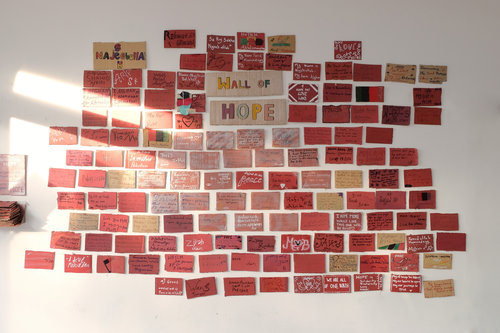- About
- Topics
- Picks
- Audio
- Story
- In-Depth
- Opinion
- News
- Donate
-
Signup for our newsletterOur Editors' Best Picks.Send
Read, Debate: Engage.
| November 13, 2020 | |
|---|---|
| topic: | Good Governance |
| tags: | #aid funding, #Balkan, #TTransparency International |
| located: | Macedonia, The former Yugoslav Republic of |
| by: | Katarina Panić |
The National Agency for European Educational Programmes and Mobility gave 270,000 Euros of EU youth funds to a company registered as a beauty salon. The head of the Agency Lidija Dimova, from ruling the Social-Democrats, claimed it was fake news, and rejected calls for her resignation, saying the entire affair was a politically motivated attack from the previously ruling VMRO-DPMNE party and threatened the journalist with a lawsuit.
"I think that the ordeal I have been through over the past few days is owing to my publication of a story in June about the misuse of European funds of 2.2 million Euros," Dimova told an online press conference.
Besides the granting a subject that appeared to be outside the Erasmus+ eligible sectors, i.e. education, training, youth and sport, there are at least two more questionable issues. Firstly, the owner of the V.E.Z. Trade company Zoran Zlatkovski reportedly was both grantee and external evaluator, which is a conflict of interests. Secondly, experts engaged for the grant projects have complained that after receiving their payments via bank accounts, Zlatkovski asked them to give the money back to him in cash, since there is nothing to do in the project anyway.
Repeatedly asked by online media outlet A1on.mk journalist to answer the question about the case, Lidija Dimova said: "I wonder if we need an interpreter to understand each other. I'm not talking to you, Kristijan, I'm very sorry. Goodbye."
So, what could be Kristijan Landov's sin? By investigating the case, he has been only doing his job. He published the documents that are available using the freedom of information law, as well as leaked ones. He also quoted people who talked publicly, as well as the sources who wanted the journalist to protect their identity. Finally, he took photos of the small Skopje-based hair salon at the Erasmus+ grantee address. The place has given no hint of any educational capacities.
Both local and EU institutions are investigating how the funds ended up where they did. They certainly have mechanisms either to prevent or to detect the wrongdoings. However, the question is: do they have will? Because have been many similar examples in the past, all over former Yugoslavia, which appeared to be never-ending stories.
For instance, in North Macedonia in 2010 the head of the National Agency for European Educational Programmes and Mobility at the time, Boško Neloski, resigned after it was made known that he had been allocating EU funds to relatives and friends for fictitious projects. In 2014, the Balkan Investigative Reporting Network revealed that various youth CSOs continued to receive significant money from EU funds between 2009 and 2014. Most of them had no permanent address, no office and no website. The European Commission temporarily closed the funds, the then VMRO DPMNE-led government announced its probe, and that was it. The real investigation never took place.
The history of misusing the international funds all over Western Balkans dates from fall of communism, i.e. ever since the western countries started to inject their taxpayers’ money into the bloc (to democratise it). It ranges from humanitarian aid during the wars, to post-war reconstruction to EU-integration support, with periodic emergencies which entail major financial interventions, such as massive flooding in 2014, the migrant crisis over the last five years or the current pandemic.
The bigger catastrophe a is, the more significant the financial support that follows. What is typical for the whole region is the absence of centralised data basis of international donations as well of grantees, the lack of coordination between the institutions, and the politicisation of aid allocation.
"Transparency International /TI/ BiH has received more than 500 calls of citizens who complained of the sale and theft of humanitarian aid, the bias in aid allocation, irregularities in the damage assessment process and the allocation of credit cards and vouchers. What concerns us the most is the fact that the relevant institutions have not informed citizens about the criteria for aid allocation and how they can receive and use the aid", reads a TI. BiH report made in flood-hit areas in 2014.
It seems that only first and last link in the whole chain is not happy: the taxpayers in the USA and Europe (since most of the donations originate from USAID and EU). All in between are apparently happy: the decision-makers, the implementers, the contractors. Otherwise, why has almost nothing changed over the decades?
By copying the embed code below, you agree to adhere to our republishing guidelines.
